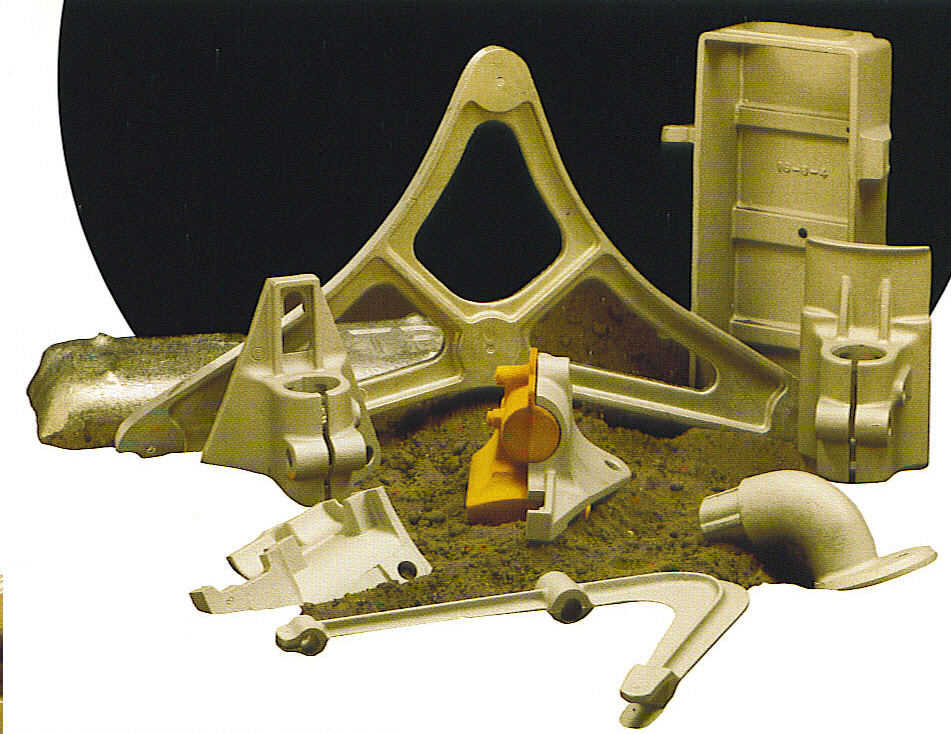Finest Practices for Maintenance and Applications in the Light Weight Aluminum Foundry Field: An In-depth Review
Keeping devices in the aluminum foundry sector is necessary for functional success. Routine evaluations and anticipating maintenance can substantially lower downtime and improve security. Advanced technologies, such as IoT and information analytics, play a crucial role in this process. Nevertheless, comprehending the full scope of best methods needs a more detailed examination of specific techniques and their effects on efficiency. What are the crucial elements that add to a trusted maintenance structure?
Relevance of Routine Upkeep in Light Weight Aluminum Foundries
Routine maintenance plays a vital function in the efficient procedure of light weight aluminum shops. By methodically evaluating and servicing equipment, shops ensure peak performance and longevity of equipment. Normal upkeep tasks, such as part, lubrication, and cleansing replacement, help prevent unanticipated breakdowns that can result in costly downtime.
Routine checks improve workplace security by recognizing prospective hazards before they rise into significant concerns. Equipment that is properly maintained operates better, causing enhanced product quality and minimized waste. In addition, adherence to an organized maintenance routine can sustain conformity with industry regulations, thus promoting a reputation for integrity and quality within the market.
Carrying Out Anticipating Upkeep Strategies
Anticipating maintenance methods take the concepts of regular upkeep an action additionally by leveraging information analytics and progressed tracking modern technologies. In aluminum foundries, these approaches enable operators to anticipate devices failures prior to they occur, thus reducing unplanned downtimes and optimizing operational effectiveness. By utilizing sensing units and IoT gadgets, real-time information can be gathered on device efficiency, permitting for the recognition of possible issues via predictive analytics.
Optimizing Melting and Putting Processes
Efficient melting and pouring procedures are essential for maximizing performance and ensuring the top quality of light weight aluminum castings. To boost these processes, factories need to concentrate on precise temperature level control during melting, as this straight impacts the metallurgical residential properties of the alloy. Making use of innovative melting technologies, such as induction and resistance melting, can boost energy performance and lower cycle times.
In addition, carrying out automated putting systems minimizes human mistake and preserves uniformity in the pouring process. Proper mold preparation, including ample preheating, is vital to prevent thermal shock and enhance mold and mildew longevity.

Enhancing Security Protocols in Foundry Workflow
Focusing on safety and security in light weight aluminum factory operations is crucial for shielding employees and ensuring a productive atmosphere. Efficient security procedures consist of normal training sessions that emphasize Recommended Site the relevance of individual safety equipment (PPE), such as goggles, helmets, and handwear covers. In addition, the establishment of clear emergency procedures is necessary in managing prospective accidents.
Regular assessments of tools and machinery aid identify hazards before they escalate right into severe problems. Executing a durable reporting system encourages workers to interact safety issues without concern of consequence. Moreover, fostering a culture of security warranties that every staff member recognizes their function in preserving a secure work environment.
In enhancement, assuring proper air flow and surveillance air quality go to these guys can alleviate exposure to harmful fumes and dirt. By enhancing these practices, light weight aluminum factories can greatly lower the danger of accidents and develop an environment where workers feel valued and safe, ultimately improving overall operational performance.
Leveraging Modern Technology for Improved Effectiveness
Making use of sophisticated innovation has actually become increasingly necessary for light weight aluminum foundries aiming to improve operational performance. Automation and robotics play a crucial role in improving manufacturing procedures, minimizing labor expenses, and minimizing human mistake. Executing real-time tracking systems permits the constant analysis of tools performance, allowing positive maintenance and reducing downtime.
The integration of information analytics supplies beneficial insights right into functional workflows, facilitating far better decision-making and resource allowance. Predictive analytics can identify prospective failures prior to they happen, additional maximizing upkeep schedules.
In addition, adopting advanced melting and spreading modern technologies boosts power performance and material yield, which are essential for sustainability in the market. By welcoming these technological innovations, aluminum shops can not only improve productivity yet additionally keep an affordable side in a progressively requiring market (Casting Foundry). Ultimately, leveraging technology is essential in driving development and boosting overall functional performance within the industry

Frequently Asked Concerns
What Prevail Signs of Devices Put On in Light Weight Aluminum Foundries?
Typical signs of devices wear in aluminum factories include unusual sounds, decreased efficiency, enhanced vibration, overheating parts, leaks, and noticeable deterioration. These indicators commonly signify the need for maintenance or potential replacement to stay clear of pricey downtime.
Exactly How Can I Train Team for Effective Upkeep Practices?
To train staff for effective maintenance methods, one can apply hands-on workshops, create thorough handbooks, encourage mentorship programs, and perform normal assessments to examine abilities and knowledge, ensuring all employees recognize maintenance protocols completely.
What Are the Ecological Rules for Light Weight Aluminum Foundries?
Light weight aluminum shops go through different environmental policies, consisting of discharges control, waste administration, and resource conservation. Compliance guarantees minimal environmental impact, promoting sustainability while sticking to local, national, and global ecological requirements and regulations.
Just How Do Factories Handle Waste and Recycling of Aluminum?
Shops take care of waste additional reading and recycling by carrying out systems for gathering scrap light weight aluminum, utilizing advanced separation modern technologies, and working together with reusing centers to assure reliable healing processes, therefore reducing ecological impact and advertising sustainability within the industry.
What Are the Prices Connected With Applying Advanced Technologies?
Carrying out sophisticated technologies in factories incurs substantial costs, consisting of preliminary financial investment, training, and maintenance expenditures. The long-term benefits, such as enhanced performance and decreased waste, usually warrant these expenses, leading to enhanced profitability. (aluminum metal casting)
